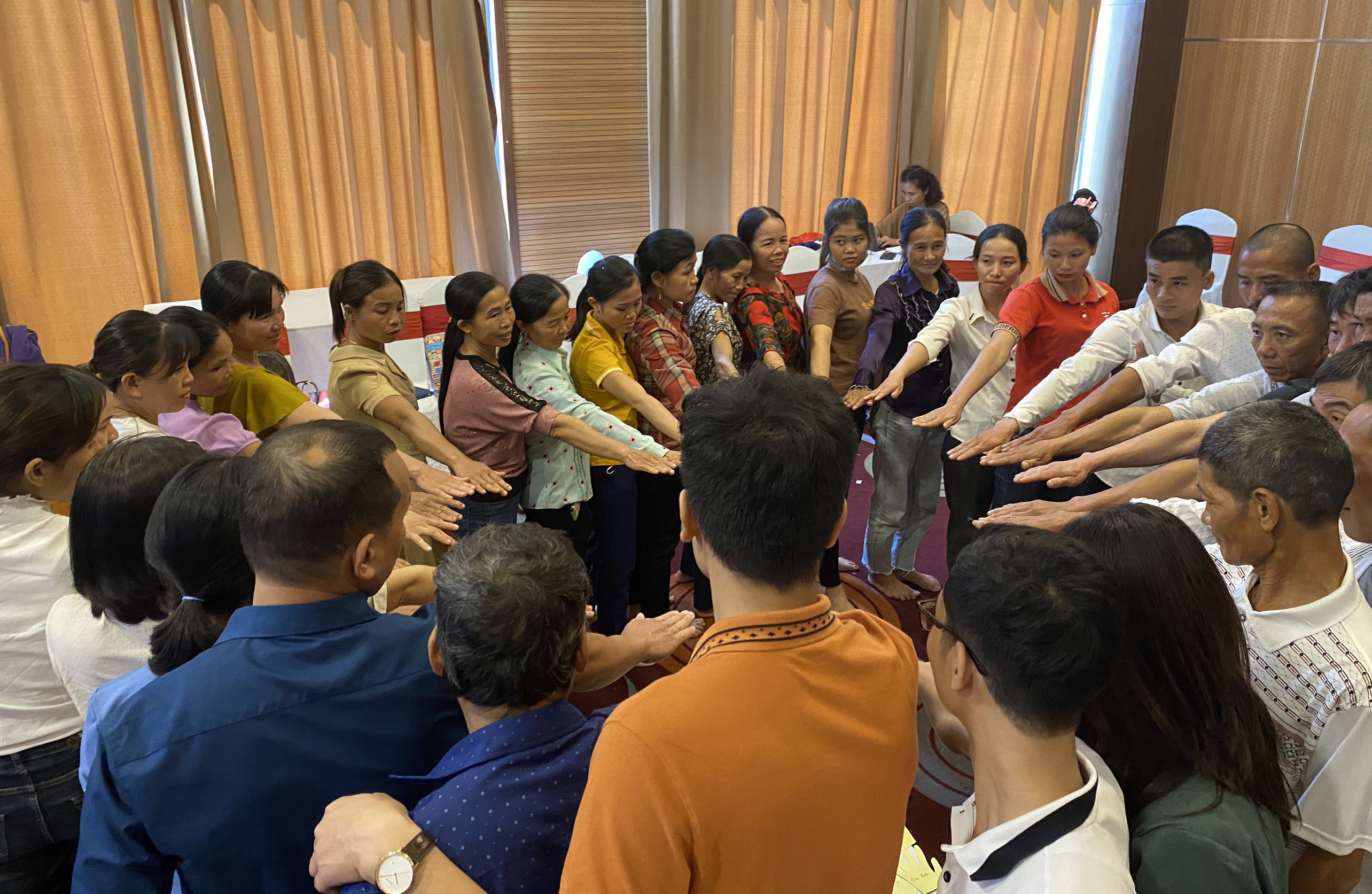
Many Vietnamese women have long been tied to the concept of " At home, obey your father. Married, obey your husband." Even if their husbands are "bad guys", they don’t dare to speak up for fear of hurting their parents or of being slandered by society.
Now, the situation has changed. They have access to information about human rights, to the Law on Marriage and Family, the Law on Prevention of Domestic Violence, and advice and support from social organizations, psychologists, social experts, and lawyers. Vietnamese women have been gradually escaping from old-fashioned thoughts to find their voice in family and society.
Psychological support
Lawyer and psychologist Hoang Hai Van recently received a phone call at night asking for urgent psychological support from a 29-year-old woman named Thuy Huong from Ho Chi Minh City.
That night, violinist Thuy Huong, in an emotional mood, confided in her about her 7-year marriage.
“A fairytale love story” are the words Thuy Huong used to describe the beginning of her story with her husband. Vu, a wealthy businessman, fell in love with Huong after watching her performance at a tea room. After the show, he called Thuy Huong to express her admiration to her.
A year later, they married in a beautiful beachside wedding. Thuy Huong gave birth to a beautiful baby girl, but her mother-in-law required a DNA test before accepting the child because she was pregnant before the wedding.
After the wedding, Vu began to change as he began controlling his wife. He asked Thuy Huong to quit her job and devote herself fully to taking care of the family.
At first, Huong did not agree, but then she compromised to keep the marriage peaceful.
Not long after Huong gave birth to her first daughter, Vu's company faced the risk of bankruptcy. Vu began sinking into alcohol.
For several years, Huong was often insulted by her husband with vulgar language. Vu even beat her whenever he was in a bad mood. Afterwards, he expressed regret, explaining that work pressure was the reason.
Commenting on the incident, psychologist Hoang Hai Van said: "Studies on the relationship between domestic violence and substance addiction show that the use of stimulants (alcohol, drugs...) increases the likelihood of violent acts. However, this is only a secondary cause. The root cause of domestic violence is gender inequality."
With an ideology that respects men and disrespects women, Vu gave himself the right to control and require his wife to serve and fulfill his requests. Huong was in a dependent position, having to obey and try harder to meet her husband's demands. If she disagreed or was late, he would treat her harshly."
Having endured so much pain and shame, Huong still held out hope that her husband would change so she hid the ugly corner of her marriage and gave birth to another boy, but the situation did not improve.
At this time, Huong was thinking about divorce, but Vu threatened to use his power to make her lose custody of her child and she would never see her children again. He criticized her for being a selfish mother. Afterwards, Vu apologized to his wife and gave her gifts to please her. Huong mistakenly thought that her husband still loved her, so she tried to justify his actions.
"Don't give up, speak up"

From the perspective of a psychological expert, Ms. Hoang Hai Van said: "When the cycle of violence repeats and becomes more serious over time, the victim is almost brainwashed to believe in the abuser’s words.
This reduces the victim's self-esteem and awareness of their condition. The abuser then shows remorse and closeness, making the victim feel relieved and continue to hope that the relationship will improve. This traumatic bond causes the victim to become co-dependent with the abuser and less and less able to resist or leave the toxic relationship."
This argument is consistent with the results of a national survey published by the Ministry of Labor, War Invalids and Social Affairs in 2021: On average, about 1 in 3 women (32%) experience physical or sexual violence from their husbands. Of these, 90.4% of women who were physically or sexually abused by their husbands did not seek advice or help.
The same is true for Huong. One day, her son's teacher called her to school and told her: "Just because his friend accidentally dirtied his notebook, your son got angry and grabbed the boy’s hair, punched and kicked him continuously." When Thuy Huong asked her son about the case, the 5-year-old boy innocently replied: "Dad still beats you."
The child’s words stunned and saddened Huong. She then began to seek help from experts.
After listening to the expert's analysis, Huong realized that she was wrong. For many years, she thought that her acts were to preserve the family for her children, but in reality she was detaining her children in a violent environment. Frequently witnessing the father insulting and assaulting the mother is traumatic. It is even possible that children will imitate violent behavior and become bullies.
Huong decided not to endure it. She consulted a lawyer to file for divorce and escape the violent relationship forever.
With evidence of her husband's abuse for many years, Huong won custody of her two children.
Psychologist Hoang Hai Van told VietNamNet: "Domestic violence is a social form, causing many serious consequences, not only directly harming physical and mental health of victims but also seriously violating human rights and personal rights in the marriage and family."
She cited a report of the United Nations Office on Drugs and Crime (UNODC) in 2021, which said that 58% of murdered women worldwide were victims of domestic violence.
She warned that when women are abused, they should not accept it but must break the silence, and seek legal help and protection from psychologists or the police.
Vu Lua